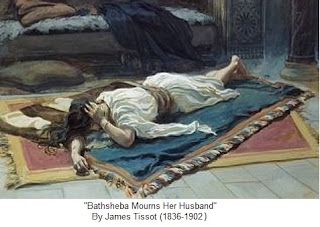John 6:24-35
"Grace"
Photo by Eric Enstrom, 1918, colorized by his daughter, Rhoda
Nyberg (d. 2012)
Designated the official picture of the state of Minnesota in
2002
Food and Drink
It did not cross the people's minds
That Jesus could have walked across the sea;
But way back as an infant born,
The wise men had gone home another way.
Thus, what it means to follow him
Is from assumptions you would fain be free;
And trust the very love of God
Which is your food and drink both night and day.
Scott L. Barton
So when the crowd saw that neither Jesus nor his disciples
were there, they themselves got into the boats and went to Capernaum looking
for Jesus. When they found him on the other side of the sea, they said to him,
“Rabbi, when did you come here?” Jesus answered them, “Very truly, I tell you,
you are looking for me, not because you saw signs, but because you ate your
fill of the loaves. Do not work for the food that perishes, but for the food
that endures for eternal life, which the Son of Man will give you. For it is on
him that God the Father has set his seal.”
Then they said to him, “What must we do to perform the works
of God?”Jesus answered them, “This is the work of God, that you believe in him
whom he has sent.” So they said to him, “What sign are you going to give us
then, so that we may see it and believe you? What work are you performing? Our
ancestors ate the manna in the wilderness; as it is written, ‘He gave them
bread from heaven to eat.’” Then Jesus said to them, “Very truly, I tell you,
it was not Moses who gave you the bread from heaven, but it is my Father who
gives you the true bread from heaven. For the bread of God is that which comes
down from heaven and gives life to the world.” They said to him, “Sir, give us
this bread always.”Jesus said to them, “I am the bread of life. Whoever comes
to me will never be hungry, and whoever believes in me will never be thirsty.
+ + +
2 Samuel 11:26 - 12:13a
Rembrandt: Nathan Admonishing David (c. 1652-53),
The Clark, Williamstown, Massachusetts
Less Sheepish
"The man who's done this ought to die!"
Thus David, his own sin, espied,
Just as he'd watched Bathsheba bathe,
Her beauty such, he could not breathe
Until he had her! Now, he learned
The tendency of power to yearn
For more and more, despite the score
That Nathan told, of gifts all poured
From Yahweh to his chosen king!
And David saw that there's one thing
You cannot do, and that is pull
Over the good LORD's eyes the wool.
And yet, the sentence he declared
For one like him who had so erred,
The LORD refused to carry out -
Less sheepish being grace than doubt.
Scott L. Barton
When the wife of Uriah heard that her husband was dead, she
made lamentation for him. When the mourning was over, David sent and brought
her to his house, and she became his wife, and bore him a son.
But the thing that David had done displeased the LORD, and
the LORD sent Nathan to David. He came to him, and said to him, ‘There were two
men in a certain city, one rich and the other poor. The rich man had very many
flocks and herds; but the poor man had nothing but one little ewe lamb, which
he had bought. He brought it up, and it grew up with him and with his children;
it used to eat of his meagre fare, and drink from his cup, and lie in his
bosom, and it was like a daughter to him. Now there came a traveller to the
rich man, and he was loath to take one of his own flock or herd to prepare for
the wayfarer who had come to him, but he took the poor man’s lamb, and prepared
that for the guest who had come to him.’ Then David’s anger was greatly kindled
against the man. He said to Nathan, ‘As the Lord lives, the man who has done
this deserves to die; he shall restore the lamb fourfold, because he did this
thing, and because he had no pity.’
Nathan said to David, ‘You are the man! Thus says the
LORD, the God of Israel: I anointed you king over Israel, and I rescued you
from the hand of Saul; I gave you your master’s house, and your master’s wives
into your bosom, and gave you the house of Israel and of Judah; and if that had
been too little, I would have added as much more. Why have you despised the
word of the LORD, to do what is evil in his sight? You have struck down Uriah
the Hittite with the sword, and have taken his wife to be your wife, and have
killed him with the sword of the Ammonites. Now therefore the sword shall never
depart from your house, for you have despised me, and have taken the wife of
Uriah the Hittite to be your wife. Thus says the LORD; I will raise up trouble
against you from within your own house; and I will take your wives before your
eyes, and give them to your neighbor, and he shall lie with your wives in the
sight of this very sun. For you did it secretly; but I will do this thing
before all Israel, and before the sun.’ David said to Nathan, ‘I have sinned
against the LORD.’ Nathan said to David, ‘Now the Lord has put away your sin;
you shall not die.’







